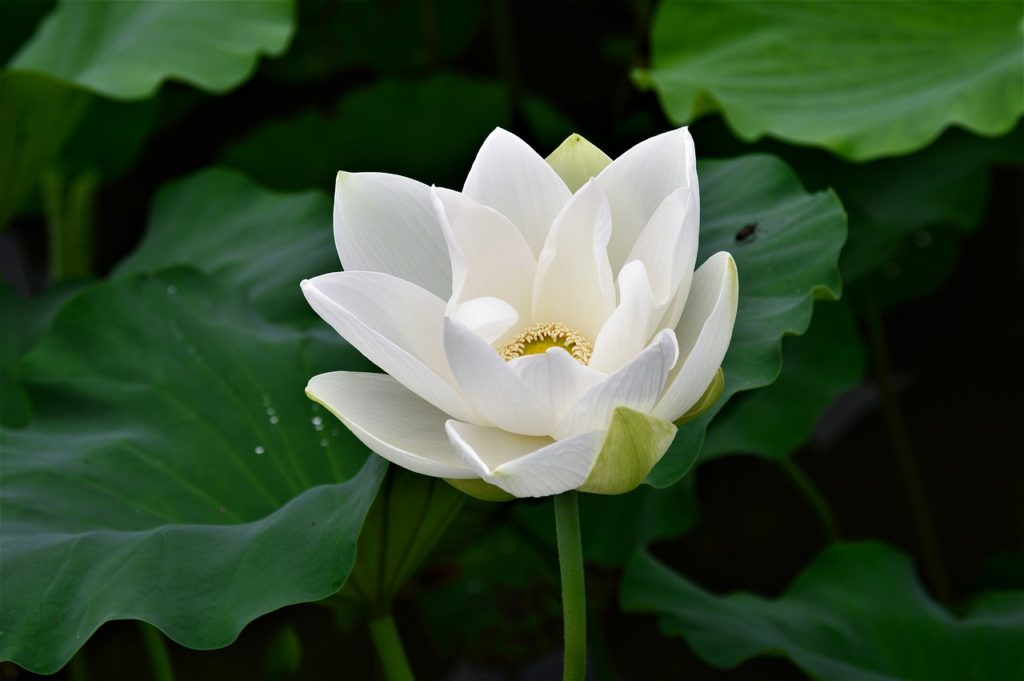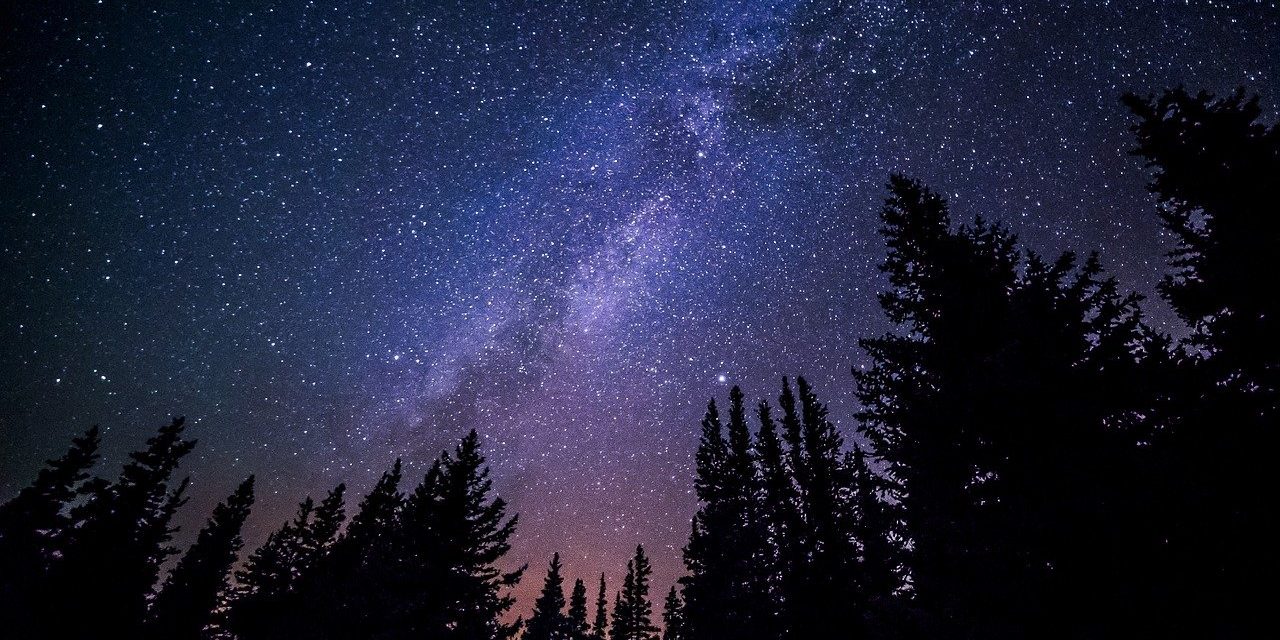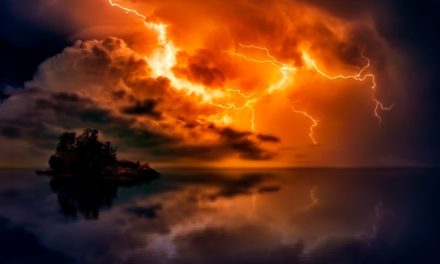Our family lives in a house in the woods at the end of a long driveway. Often, in the middle of the night, I will walk to the end of it to look at the stars. Once I’ve reached the road, there are a lot more of them because of the gap in the trees. Sometimes I walk a ways toward town following the flow of the galaxy above my head rather the road itself, which on moonless nights is so dark I cannot see my shoes.
At the bottom of the hill there is a grassy field that used to belong to horses but now belongs to no one but the sky. About twenty years ago, something terrible happened at the house whose owners the horses belonged to, a large white Victorian with lots of outbuildings and apple trees. But now no one remembers what it was, or they won’t say. The house has been empty since, although a single porch light remains on always, 365 days a year.
Someone always replaces the bulb when it burns out, but it’s a mystery who this might be. No one comes and no one goes. The house follows the seasons to the accompaniment of that solitary trickle of electric light, falling a little further into ruin with the passing of every year. Somehow it always feels like a metaphor—as if that lone bulb burning through the night were the expression of a sorrow too deep to express in any other way. It seems to gather the sorrows to it. As if, in the darkness, they were attracted to its light.
 About ten years ago, I began studying a Buddhist scripture known as the Lotus Sutra. The main point of the sutra is contained in the symbolism of its title. For the lotus is a beautiful white flower that opens in the light at the surface of a pond, though its roots lie deep in the mud and muck below. No mud, no lotus. The dark and the light are one.
About ten years ago, I began studying a Buddhist scripture known as the Lotus Sutra. The main point of the sutra is contained in the symbolism of its title. For the lotus is a beautiful white flower that opens in the light at the surface of a pond, though its roots lie deep in the mud and muck below. No mud, no lotus. The dark and the light are one.
The Lotus Sutra reaches its climax when the Buddha explains that life is eternal. But by that he doesn’t mean life in some distant heaven-like realm. Life in this world is eternal. Living beings seem to come and go like lotus blossoms at the surface of the pond. But the Buddha—the eternal Life Force that abides in each individual being and truly is each being—that does not come or go. To his anxious disciples, committed to a linear vision of time and ensnared by the ceaseless drama of gain and loss, he says, “I am always here. I only appear to come and go.”
One night before bed, I was reading the chapter from the Lotus Sutra entitled “Emerging from the Earth.” In that chapter, the disciples who have gathered to hear the sutra vow to protect and spread its teachings during future ages. Unexpectedly, however, the Buddha tells them that this is unnecessary. There are already innumerable beings who have been placed in charge of preaching and protecting that sutra. When the Buddha has spoken these words, the earth splits open, and out of it emerge “immeasurable thousands, ten thousands, millions of bodhisattvas.” Golden in color and endowed with the thirty-two characteristics of enlightened beings, they had previously occupied what the sutra calls “the world of empty space underneath this world in which living beings must struggle and endure.” Hearing the voice of the Buddha calling to them, however, at last they have emerged. The Buddha’s living disciples are shocked when they see them and cry as one, “How can this be?”
What impressed me about the story was that the disciples knew nothing of the existence of these ancient Earth teachers before the Buddha called them forth. Two millennia ago, when the New Testament and the Lotus Sutra were both being written, that knowledge was already being lost. On a mountain in Judea, and on another in northern India, it was necessary to remind the living of “a new path that is really the old path.” The further the living travel into the realm of light and culture, the more they forget the darkness and the dead. And the more they lose their way.
But the vision of the Lotus Sutra was ultimately hopeful for the future. For it spoke of that ancestral path being lost and reclaimed over and over again on its journey through deep time. If, throughout the universe, living beings were always going off a cliff through pride or arrogance—or simply because they forgot who they really were—they were always dusting themselves off after a fall and finding their way forward again, recovering an ancient bodhisattva wisdom that taught them how to live.
As I read the sutra that night, I found myself wondering what its authors would have made of Charles Darwin and Louis and Mary Leakey and the countless “bodhisattvas” who had emerged when they’d first “split open” the earth, recovering the remains of our bygone ancestors, either by inferring their existence from current biology, as Darwin did, or by literally digging them up like the Leakeys. Together with their colleagues and successors, these pioneers of deep history had produced something one might call “The Evolution Sutra,” the message of which was identical to that of the Lotus.
Were the creators of the Lotus Sutra alive today, they would probably tell us that we are on the verge of recovering a much longer path through time than we have ever imagined for ourselves before. Did we really suppose that we were on a journey of only a few thousand years in duration, or a few hundred thousand? The wisdom of our ancestors has been passed down, not just from person to person on that journey, but from species to species. Our task now is to recover it again. That teaching is the price of admission to our future as human beings—provided we want that future to be a deep one. The good news is that, according to the Lotus, at many other times and places throughout the vast darkness of the cosmos, that teaching has been lost and recovered before.
I will only add that later that night, when I woke for the Hour of God, the porch light on the abandoned house had burned out again and the sadness I’d felt before had all gone. We may find our way forward as a species or not—and I won’t live to see it in any case—but we can recover the old path even now. It opens in the darkness . . . and takes us where it goes.

This is an excerpt from Waking Up to the Dark: Ancient Wisdom for a Sleepless Age by Clark Strand.






